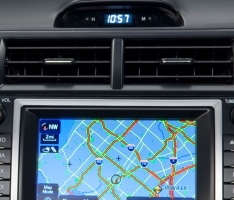
— A Toyota Camry HVAC lawsuit is moving forward as a federal judge denied to grant summary judgment to Toyota and Southeast Toyota Distributors (SET).
The SET region includes Alabama, Florida, Georgia, North Carolina and South Carolina.
The original Toyota Camry HVAC lawsuit included millions of 2012-2017 Camry and Camry Hybrid cars.
But according to the current version of the Camry class action lawsuit, non-hybrid 2012-2014 Camrys have defects in the heating ventilation and air conditioning systems that cause moldy smells in the cars.
The passenger compartments in the Camry cars allegedly fill with dangerous odors created by the accumulation of moisture and microbial growth within the HVAC systems.
The Toyota Camry HVAC lawsuit alleges the system “allows condensing water to accumulate and allows naturally present organic contaminants to be trapped, kept moist and cultivate organic matter such as microbes, bacteria, mold and fungus.”
The plaintiffs allege Toyota and Southeast Toyota Distributors conspired to conceal HVAC defects and engaged in a plot to protect the Toyota brand and to overcharge Toyota Camry customers.
In addition, Toyota and SET allegedly worked together to avoid repairs and buybacks under Florida Lemon Laws, all which are alleged violations of the federal Racketeer Influenced and Corrupt Organizations (RICO) Act and the Florida Deceptive and Unfair Trade Practices Act (FDUTPA).
Toyota allegedly told dealers to inform Camry customers the HVAC odors occurred naturally and couldn't be repaired.
According to the Camry HVAC lawsuit, more than 200,000 customers purchased 2012-2014 non-hybrid Camry cars within the SET region.
Toyota Camry HVAC Lawsuit (Summary Judgment Denied)
The Toyota lawsuit had already survived a dismissal bid, but Toyota and Southeast Toyota Distributors then moved for summary judgment, asking the judge to rule against the plaintiffs without going to trial.
Toyota told the judge the conspiracy RICO claims fail for multiple reasons and the Camrys do not show evidence of having defective HVAC systems.
However, out of the four plaintiffs who sued, only one plaintiff saw her claims tossed out because she did not purchase her Camry at an authorized Toyota dealer.
Toyota also argued the opinions and testimony of damages experts be dismissed, but the judge ruled to exclude only the opinion that “cost to repair damages are a suitable proxy for estimating overpayment." The rest of the expert damages testimonies will remain.
The Toyota Camry HVAC lawsuit was filed in the U.S. District Court for the Southern District of Florida: Cardenas, et al., v. Toyota Motor Corporation, et al.
The plaintiffs are represented by Podhurst Orseck P.A., Kessler Topaz Meltzer & Check LLP, and Kiesel Law LLP.




